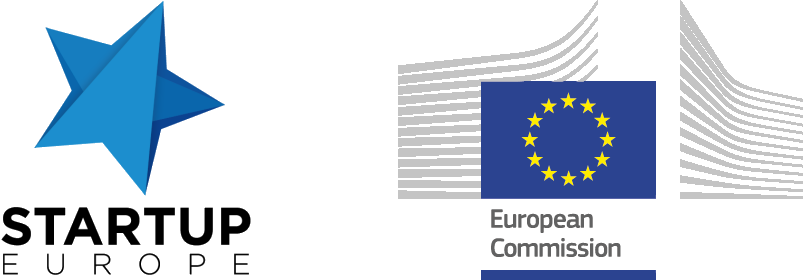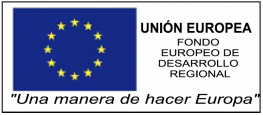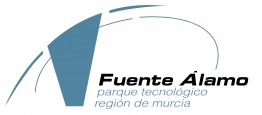«AIOTI Recommendations for future collaborative work in the context of the Internet of Things Focus Area in Horizon 2020» are now available.
The Alliance for Internet of Things Innovation (AIOTI) publishes the twelve Reports containing the «Recommendations for future collaborative work in the context of the Internet of Things Focus Area in Horizon 2020» covering the main focus areas of the Internet of Things (IoT) Work Program 2016-2017. These documents have been elaborated by eleven working groups (WGs) encompassing industry high level experts, innovators, end-users, law experts and representatives of societal challenges, who have worked intensively together for the last six months.
The Report by WG01 builds on the work of the IoT Research Cluster (IERC) and is focused on boosting the IoT technological advancements and converging the shaping and development of new dynamic business models and IoT ecosystems. As the chair of the AIOTI WG01, Dr. Ovidiu Vermesan Chief Scientist at SINTEF said: «our Report will promote the market emergence of IoT and overcome the fragmentation of ‘silos’, architectures and applications. IoT technology is the needed enabler for eliminating the ‘digital divide’ and creating the basis for the implementation of the Digital Single Market».
Working Group 2 has focused on how to stimulate the innovation Eco-System for AIOTI. Mr. Kees van der Klauw from Philips, chair of WG02 said: ‘our working group developed clear engagement rules for participation in IoT Large Scale Pilots, making sure that we involve the right stakeholders, that we build and link platforms and that we apply the appropriate rating criteria and funding mechanisms. And we are committed to implement them’.
The Chair of the WG03 and Senior Research Officer at the European Telecommunications Standards Institute (ETSI), Mr. Patrick Guillemin, remarks that: «the work of AIOTI working group on «IoT Standardisation» is seen as a reference for the AIOTI Working Groups in order to address the interoperability issues and to recommend the use of standard-based solutions for the deployment of IoT solutions. We have been talking to SDOs and Alliances about collaborations and interworking as a means to reduce fragmentation. What AOITI brings to all this is a dramatic acceleration of the pace of discussion.”
The Chair of the WG04 on «Policy Issues» and Head of Enterprise Regulation at Vodafone Group, Mr. Robert MacDougall, puts emphasis on the fact that the AIOTI Policy Report makes a number of recommendations, in relation to privacy, security, liability and net neutrality, which should go a long way to creating an effective environment for the successful development of the Internet of Things within Europe. And he stressed: “I believe that this is the right moment to address any possible barriers which may restrict the adoption of IoT as part of the Digital Single Market.”
Regarding the outcome of the «Smart Living Environments», the chair of the WG05, Mr. Mustapha Bouraoui, Vice-President Strategic Marketing EMEA at STMicroelectronics, underlines that «in the context of a salutary growing life expectancy, the Internet of Things offers an efficient set of technologies to help elderly people staying active, independent and out of institutional care settings. Our Report should help the IoT global community deliver such technologies the sooner possible.»
Mr. Luis Pérez Freire, Executive Director at the Research and Technology Center of GRADIANT, Executive Director of the GRADIANT Technology Institute, chair of the working group on «Smart Farming and food security» stresses that “IoT-based smart farming applications do not target only large, conventional farming exploitations, but will be able to act also as levers to boost other common or growing trends in agricultural exploitations. This Report focuses on the opportunities brought through IoT technologies in farming applications, and the challenges to unlock their full potential in large scale implementations.”
The Chair of the WG08 on «Smart cities» Mr. Sergio Garcia Gomez, Technology Specialist at Telefonica highlights that: «A Smart Cities market must leverage on interoperability at the data layer inside and among cities to enable integration and scale. The Smart Cities pilot requires to focus on solving real needs of citizens while staying profitable and sustainable, by implementing public–private collaborations and thriving local entrepreneurship ecosystems. This is also the focus of our Report.»
Dr. Marko Häckel from Robert Bosch GmbH, chair of the WG on «Smart Mobility» (WG09) lays emphasis on the fact that: “In the Internet of Things, Connectivity and Automated Driving belong ultimately together. It is a question of time and innovation, when and where the synergies will create most added value. Via our reports we make clear recommendations on what could be the first synergies.”
The release of the Reports constitutes the completion of the starting phase during which the Alliance was invited to take stock on past and current research and innovation achievements and to propose recommendations for future collaborative work in the context of the context of the Internet of Things Focus Area in Horizon 2020.
Background
On 4th February 2015, the IoT industry together with the European Commission launched the European Alliance for IoT Innovation (AIOTI), meant as a new global voice for IoT in line with European values. The IoT industry committed to establish the most dynamic, agile IoT ecosystem in the world to address people’s lives and societal challenges, and to stimulate growth.
AIOTI is today the biggest IoT stakeholder forum in Europe that identifies roadblocks for IoT deployment, gaps in standardisation and promotes cross-domain synergies by bringing together the telecom, internet sector, automotive, home, agriculture, health and smart city stakeholders.
More information on AIOTI here: http://bit.ly/1Ahx4Jn
Download all the AIOTI Reports here: http://bit.ly/1GtzJ5I












